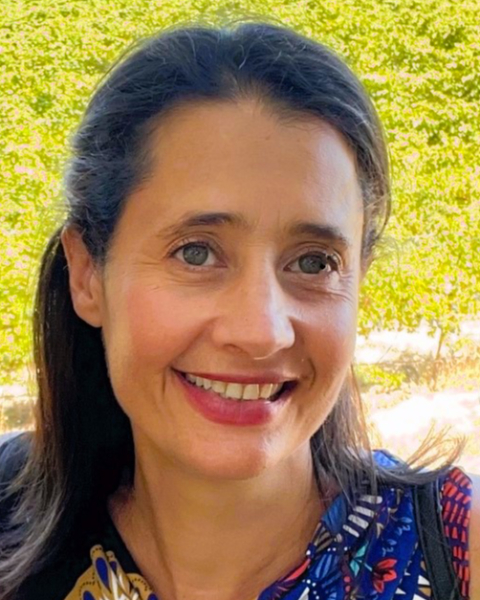Plenary
Session: Scholar Presentations
Donor HLA-B-leader and HLA-DQ Genotypes Impact on Outcomes Following Lung Transplantation
Thursday, October 24, 2024
10:15 AM - 10:30 AM US PDT
Location: Marquis Center

Lucy Sullivan, PhD
Australian Red Cross Lifeblood
Speaker(s)
Aim: Previous studies have shown that HLA-B leader and HLA-DQ genotypes influence outcomes following hematopoietic cell transplantation, whereas their impact on lung transplantation is unknown. A sequence dimorphism in exon 1 of the HLA-B leader encodes a methionine (M) or threonine (T) giving rise to 3 HLA-B leader genotypes: TT, MT or MM. HLA-DQ heterodimers have an evolutionary split resulting in G1 or G2 genotypes. G1 heterodimers consisting of DQA1*02/03/04/05/06α paired with DQB1*02/03/04β while G2 heterodimers DQA1*01α paired with DQB1*05/06β, giving rise to 3 genotypes: G1G1, G1G2 and G2G2. The aim of this study was to investigate the role of both HLA-B leader and HLA-DQ heterodimer genotypes in the outcome following lung transplantation.
Methods: 310 primary adult lung transplants performed between 2008 and 2015 at the Alfred Hospital, Melbourne was retrospectively analysed for HLA-B leader and HLA-DQ heterodimers. Sequencing for recipients and donors was performed by next generation sequencing and HLA-B leader and HLA-DQ heterodimer were defined. Primary outcomes measured were chronic lung allograft dysfunction (CLAD) and overall survival. Cox regression and survival curves were calculated to assess associations.
Results: Recipient B leader peptide frequency in our cohorts were MM=14%, MT=29% and TT=47%, while donor frequencies were MM=9%, MT=41% and TT=50% respectively. HLA-DQ frequencies were G1G1=34%. G1G2=52% and G2G2=13%, while donor frequencies were G1G1=37%. G1G2=48% and G2G2=15% respectively. Neither HLA-B leader nor HLA-DQ genotype mismatching was associated with rejection or overall survival following lung transplantation in multivariate cox regression models. Intriguingly however, donor HLA-B MM leader alone was associated with increased overall survival (p=0.049), whereas donor G2G2 alone was associated with a lower incidence of CLAD (p=0.044) after adjustments for other risk factors (Figure 1).
Conclusion: Here, we demonstrated for first time that donor HLA-B leader and HLA-DQ heterodimer types can influence outcomes following lung transplantation. More work on larger cohorts is required to evaluate what mechanisms are involved. However, using HLA-B leader and HLA-DQ genotypes could be utilised as an extra tool for evaluating immunological risk in solid organ transplantation.
Methods: 310 primary adult lung transplants performed between 2008 and 2015 at the Alfred Hospital, Melbourne was retrospectively analysed for HLA-B leader and HLA-DQ heterodimers. Sequencing for recipients and donors was performed by next generation sequencing and HLA-B leader and HLA-DQ heterodimer were defined. Primary outcomes measured were chronic lung allograft dysfunction (CLAD) and overall survival. Cox regression and survival curves were calculated to assess associations.
Results: Recipient B leader peptide frequency in our cohorts were MM=14%, MT=29% and TT=47%, while donor frequencies were MM=9%, MT=41% and TT=50% respectively. HLA-DQ frequencies were G1G1=34%. G1G2=52% and G2G2=13%, while donor frequencies were G1G1=37%. G1G2=48% and G2G2=15% respectively. Neither HLA-B leader nor HLA-DQ genotype mismatching was associated with rejection or overall survival following lung transplantation in multivariate cox regression models. Intriguingly however, donor HLA-B MM leader alone was associated with increased overall survival (p=0.049), whereas donor G2G2 alone was associated with a lower incidence of CLAD (p=0.044) after adjustments for other risk factors (Figure 1).
Conclusion: Here, we demonstrated for first time that donor HLA-B leader and HLA-DQ heterodimer types can influence outcomes following lung transplantation. More work on larger cohorts is required to evaluate what mechanisms are involved. However, using HLA-B leader and HLA-DQ genotypes could be utilised as an extra tool for evaluating immunological risk in solid organ transplantation.
